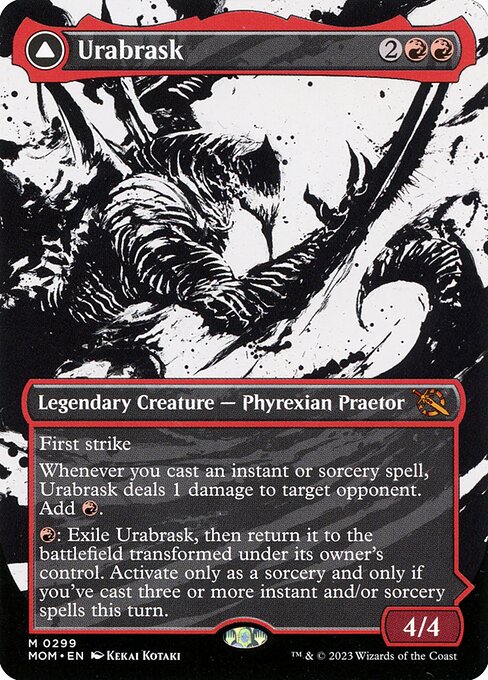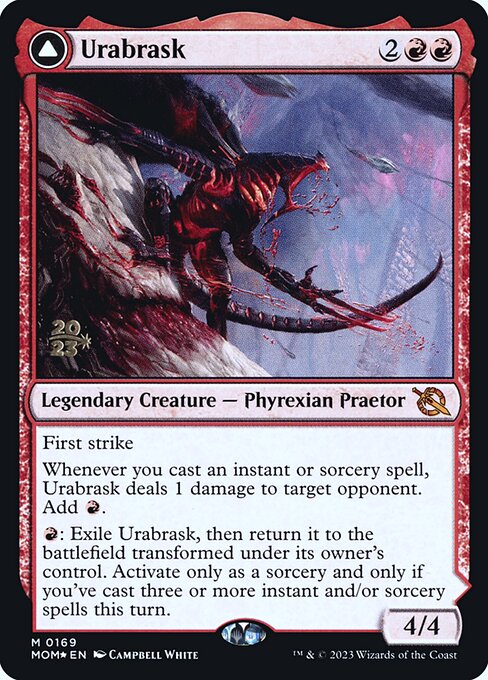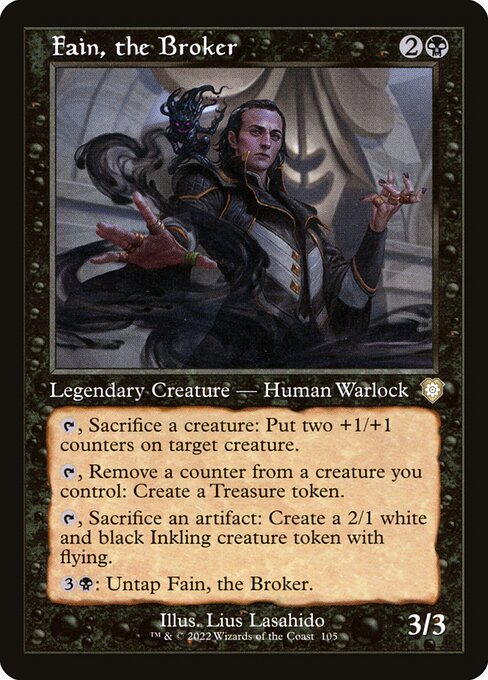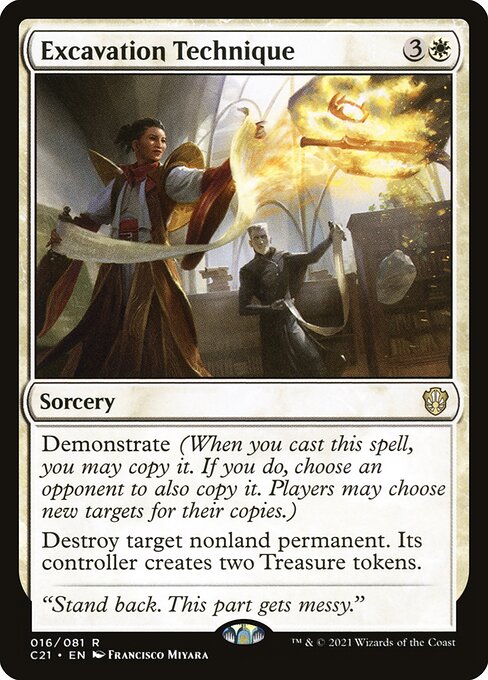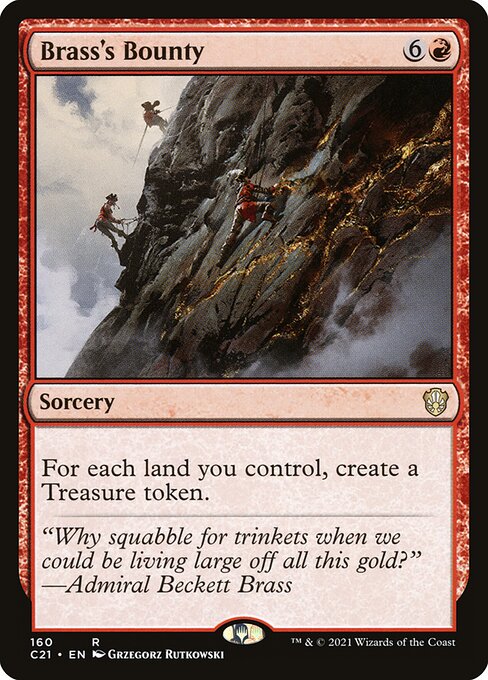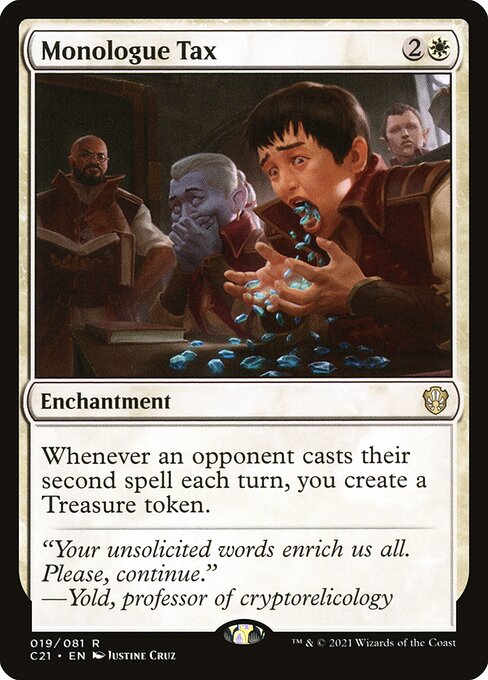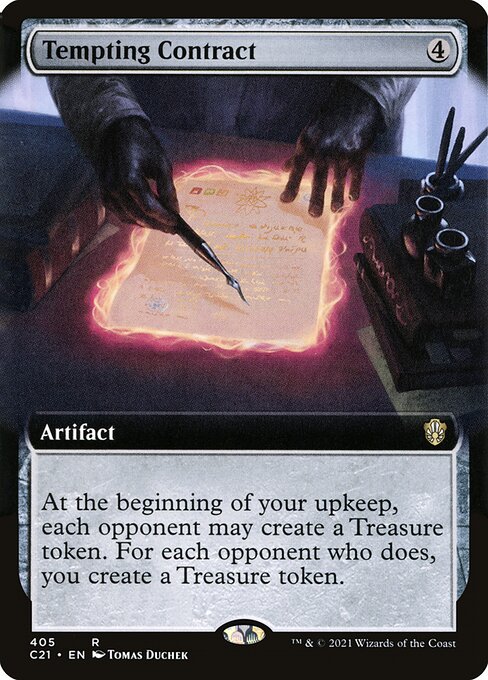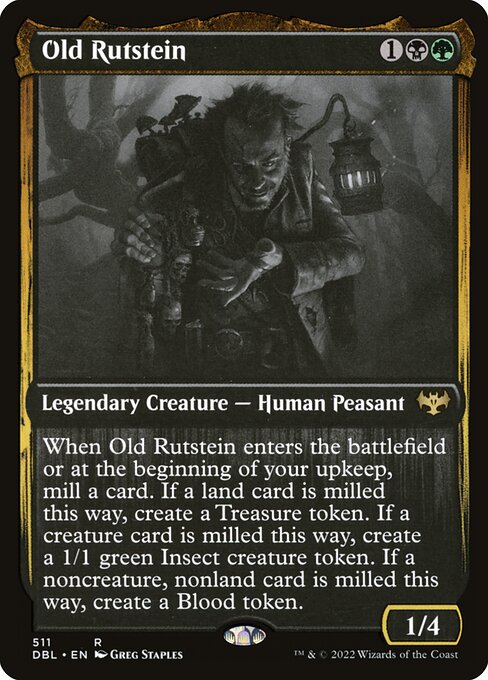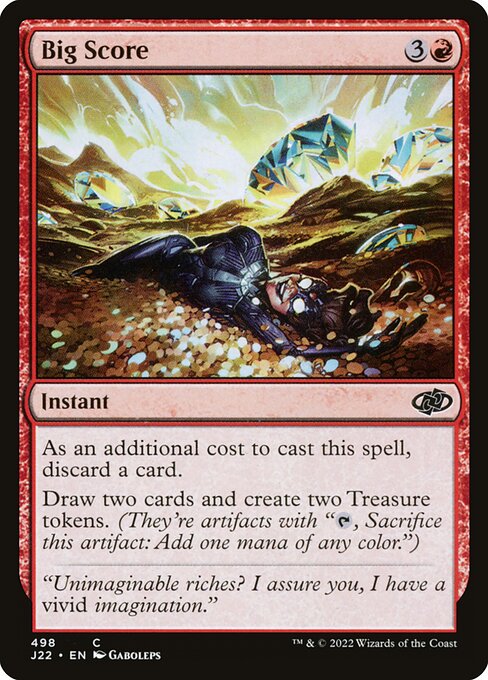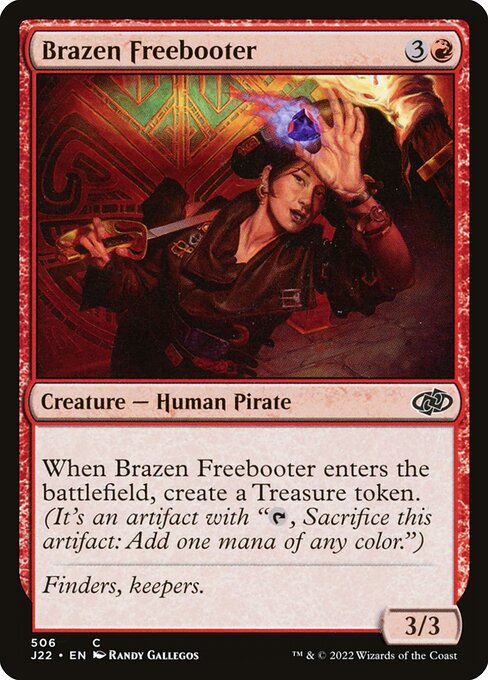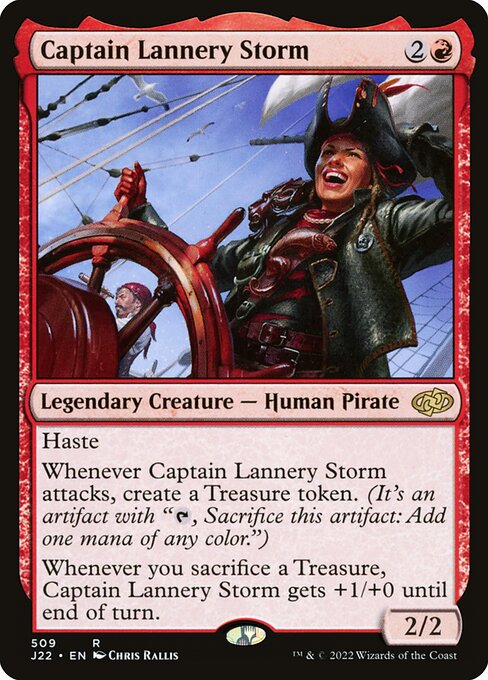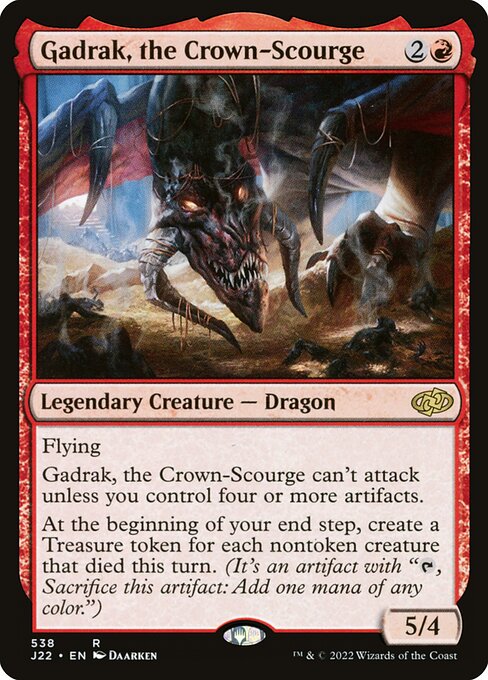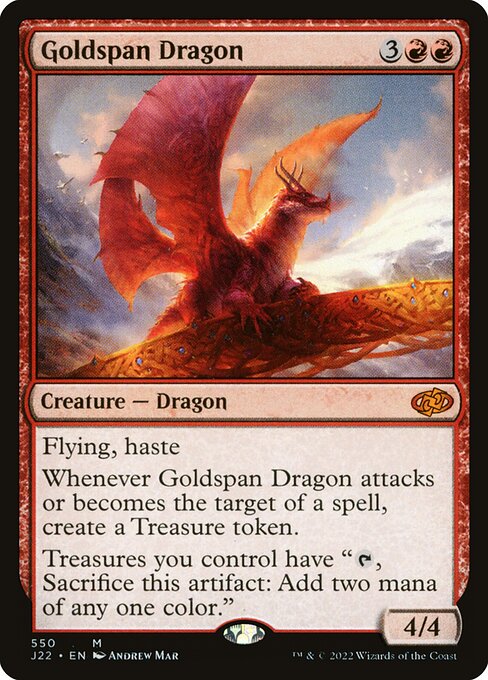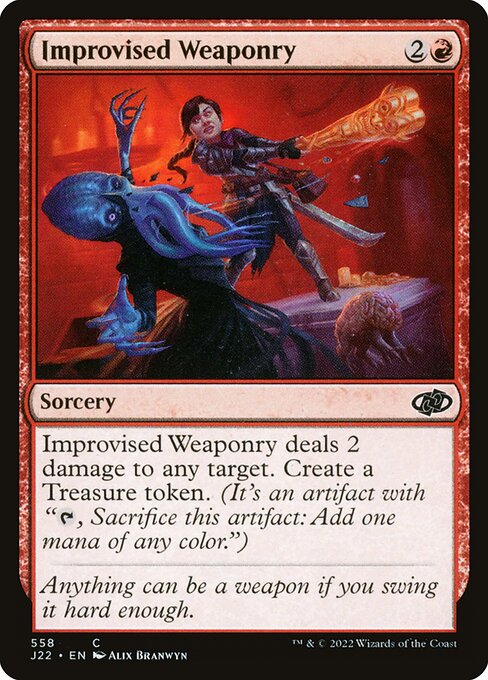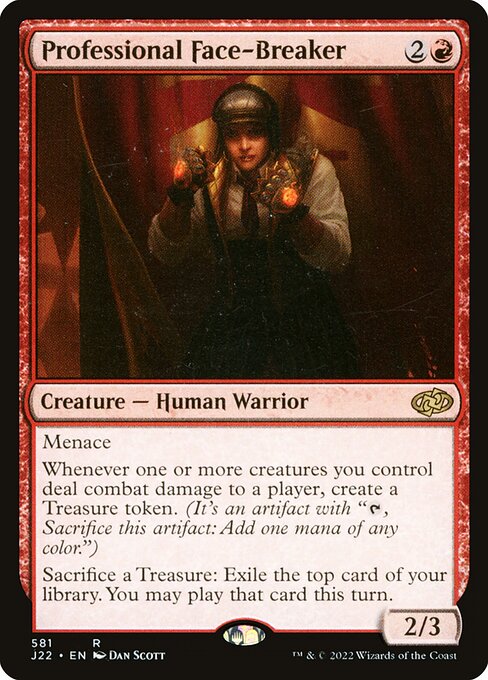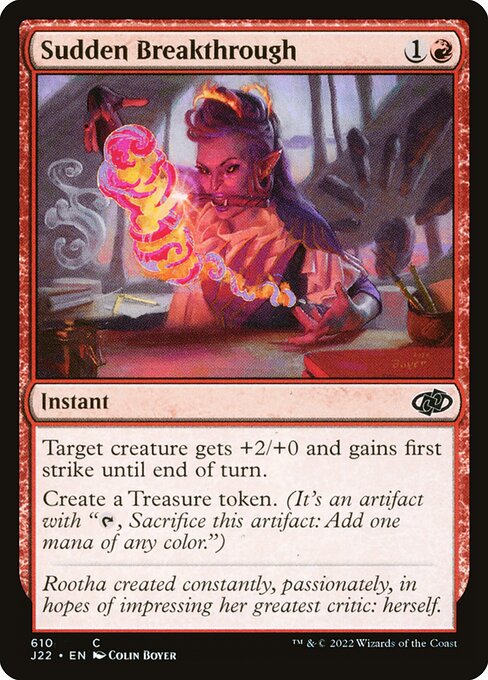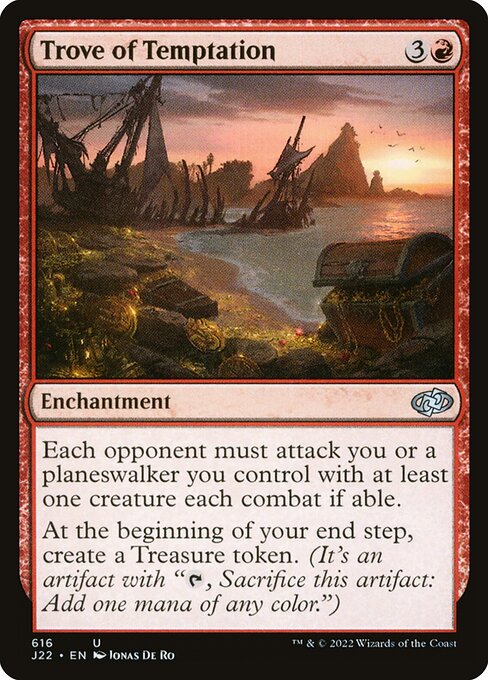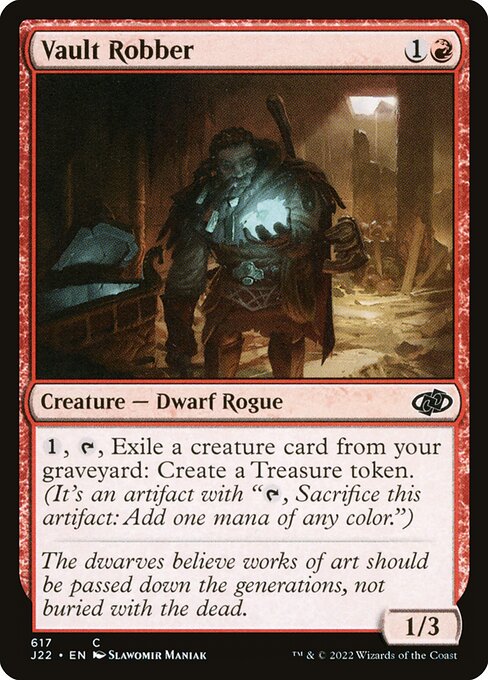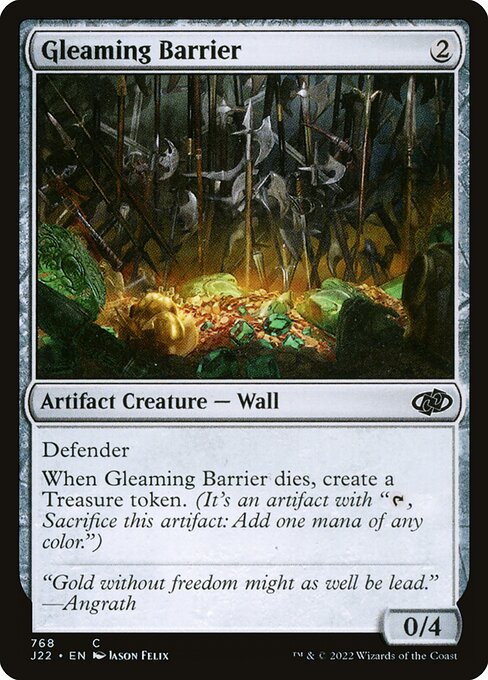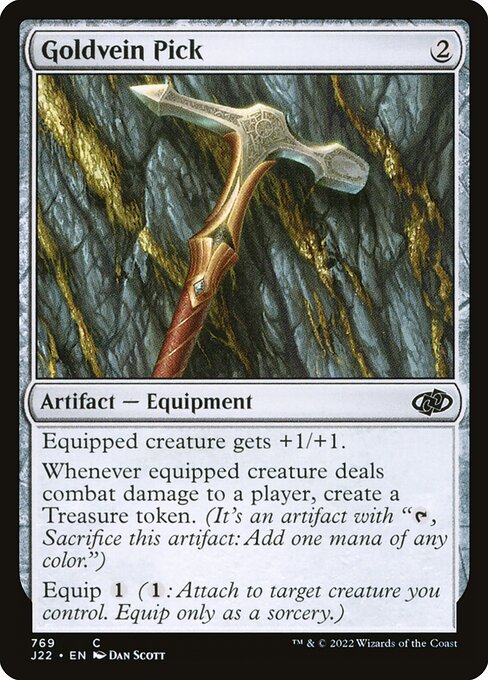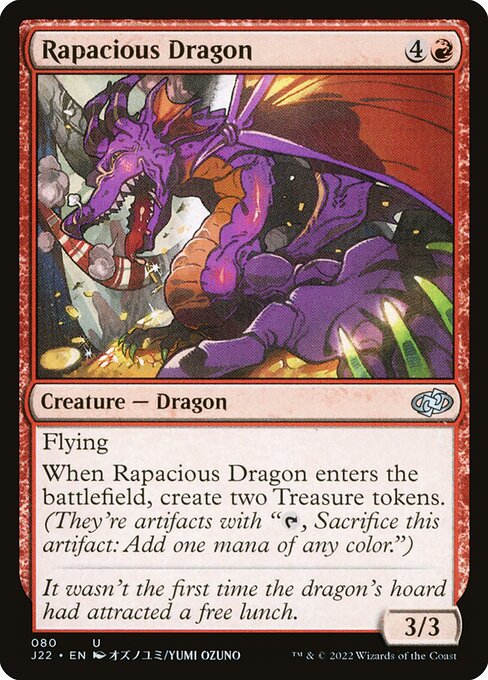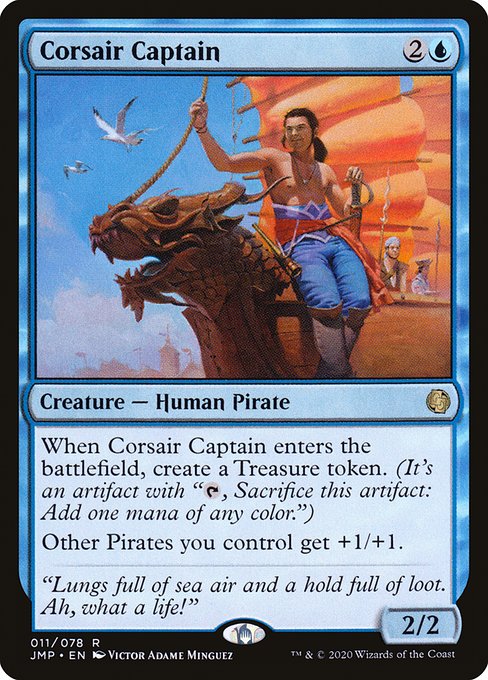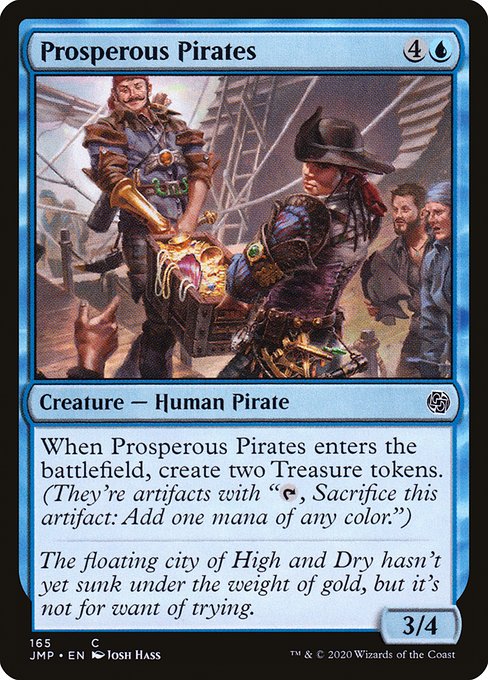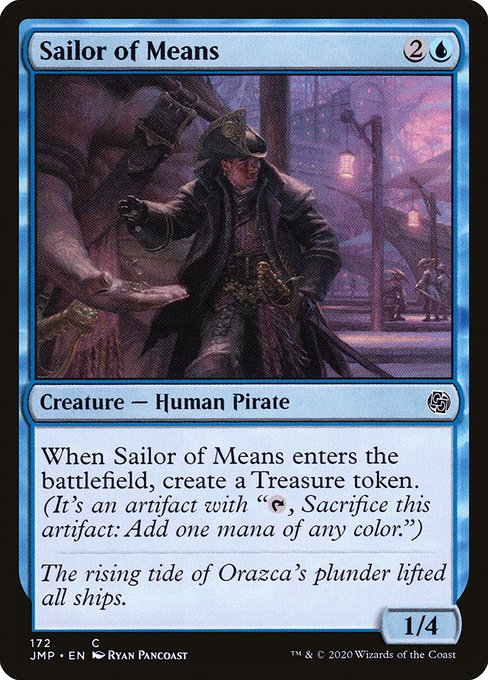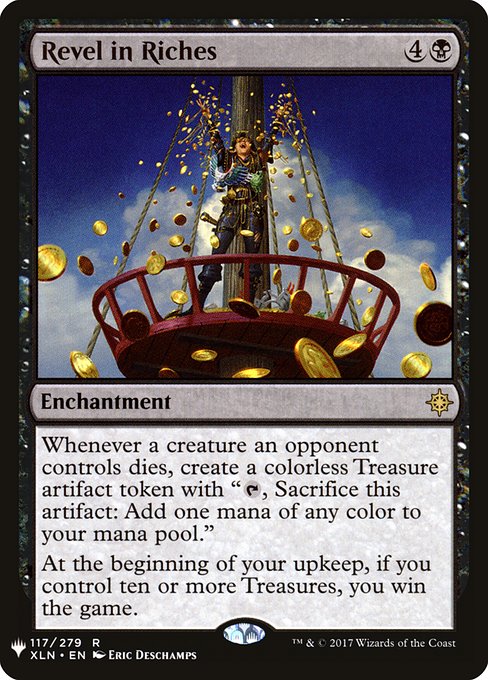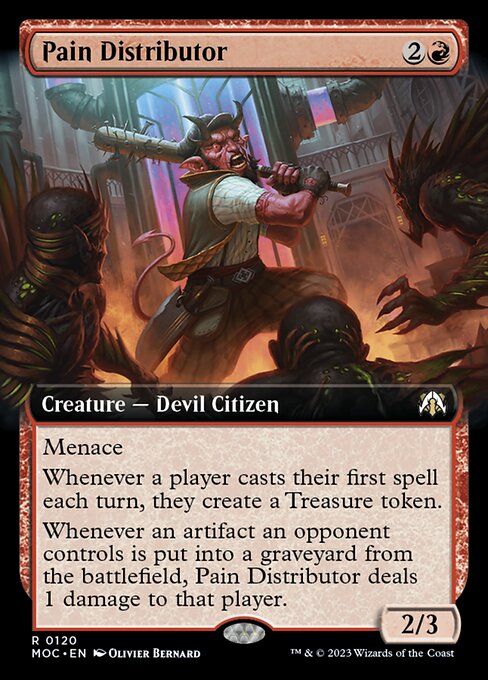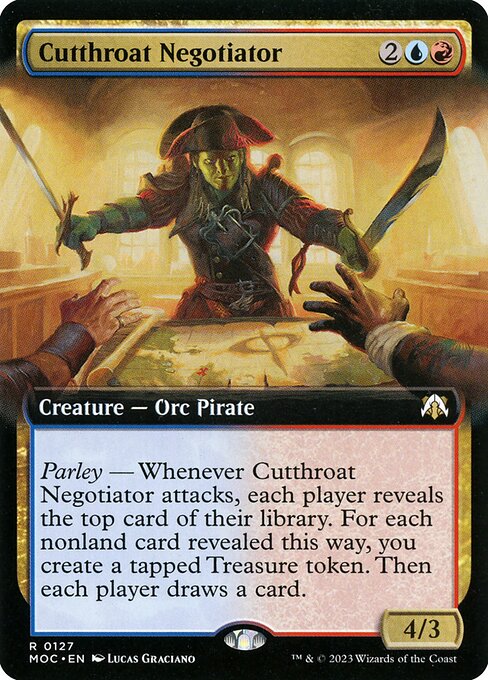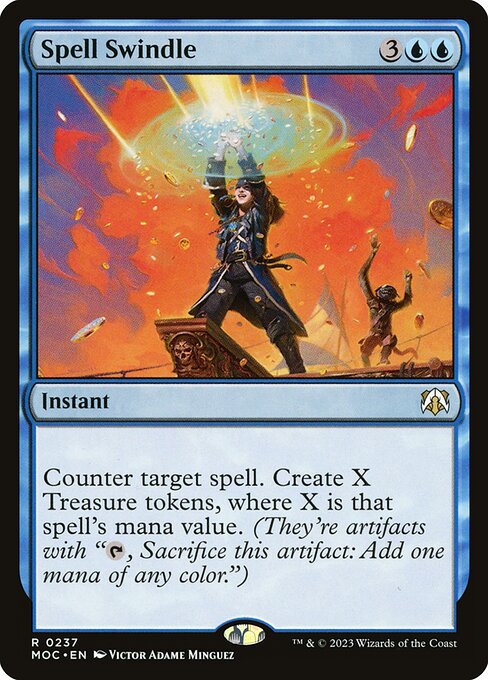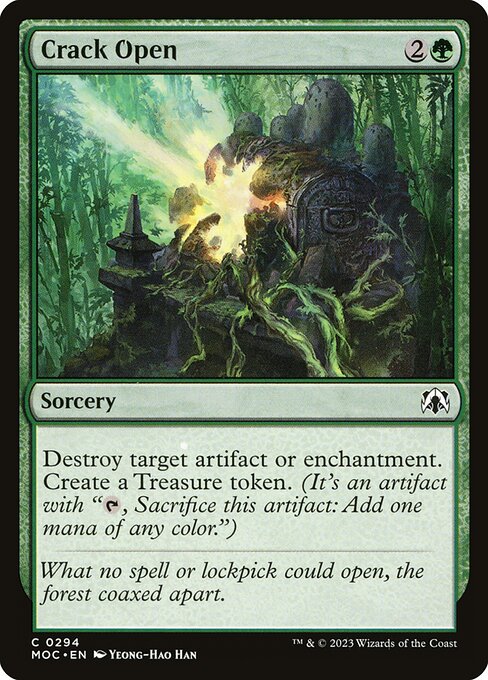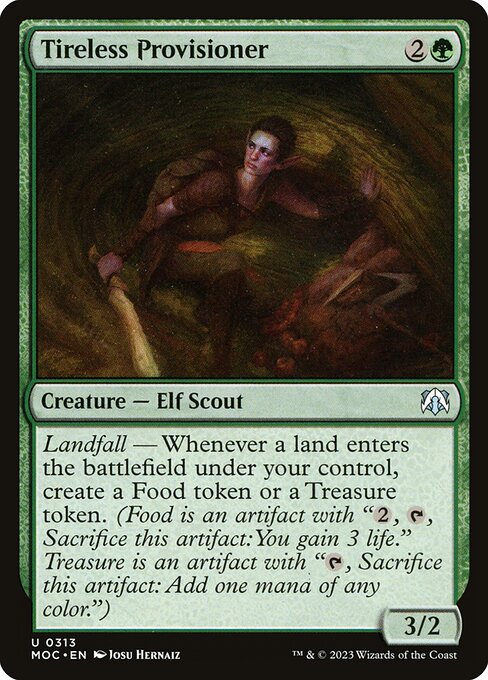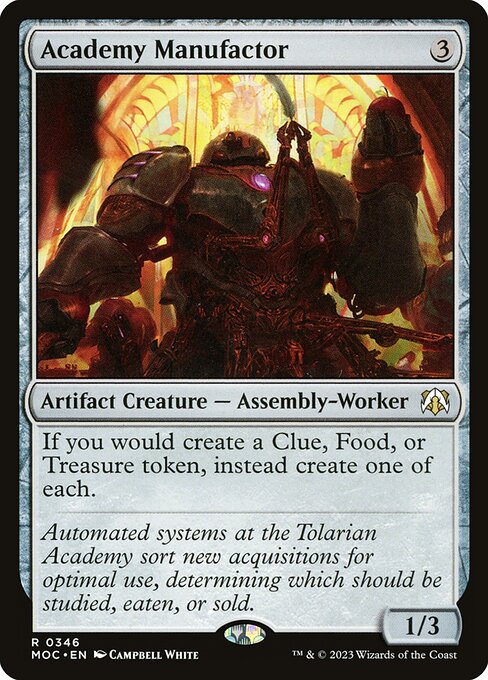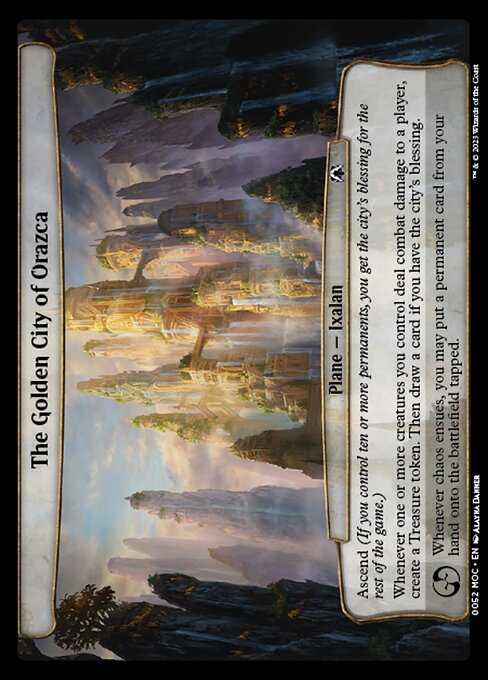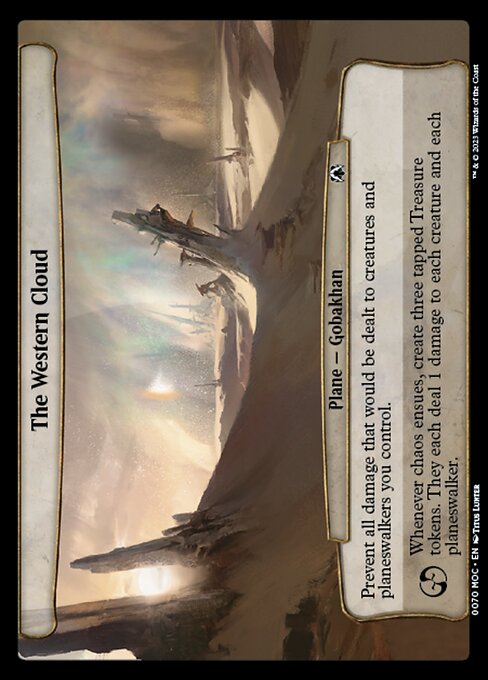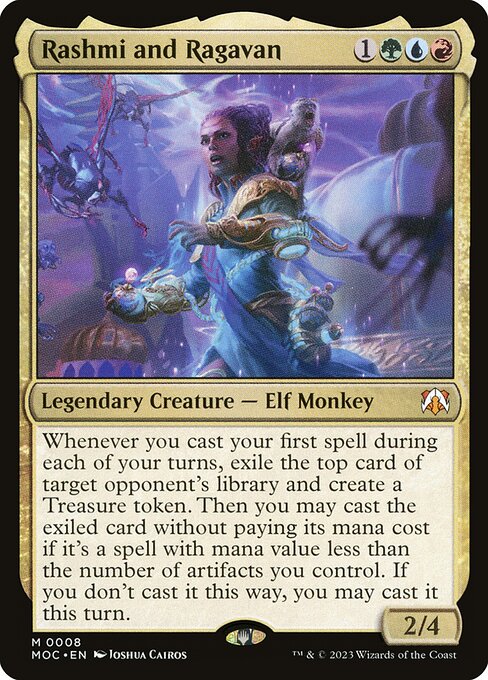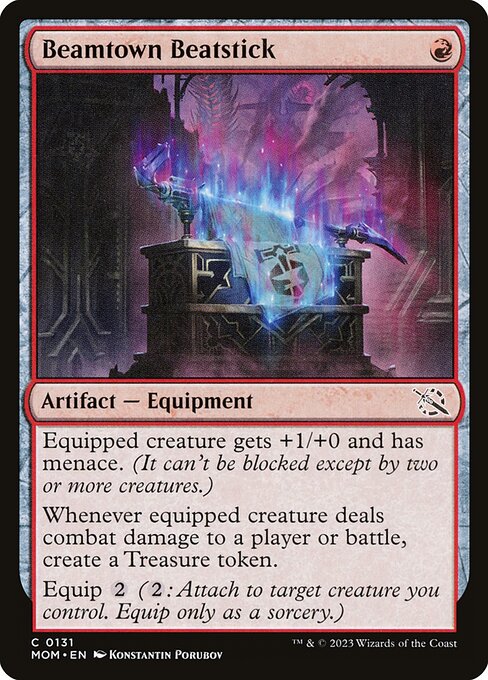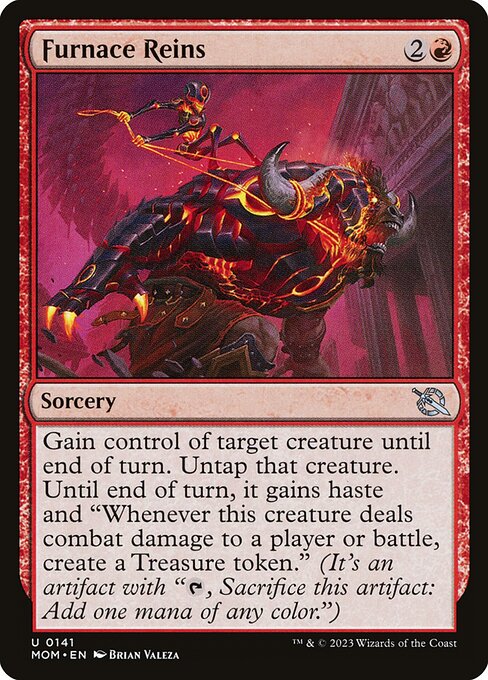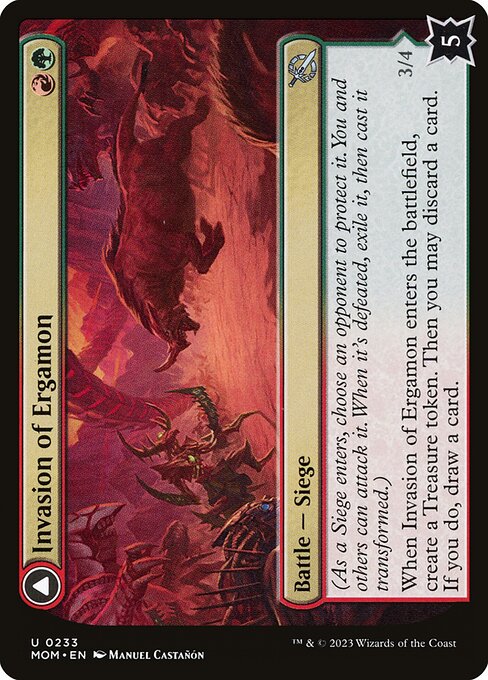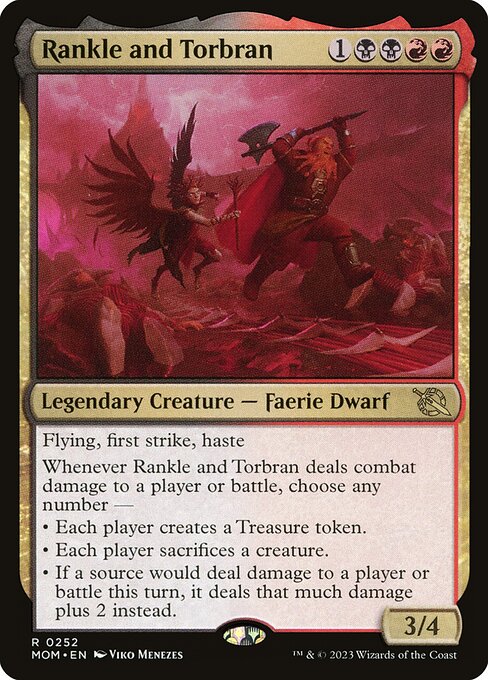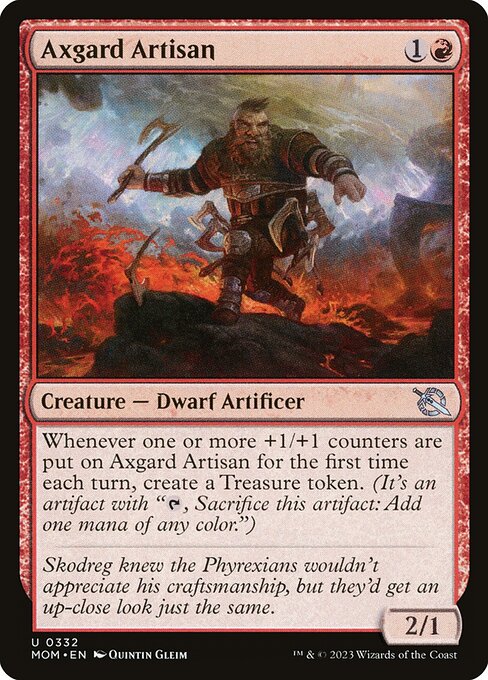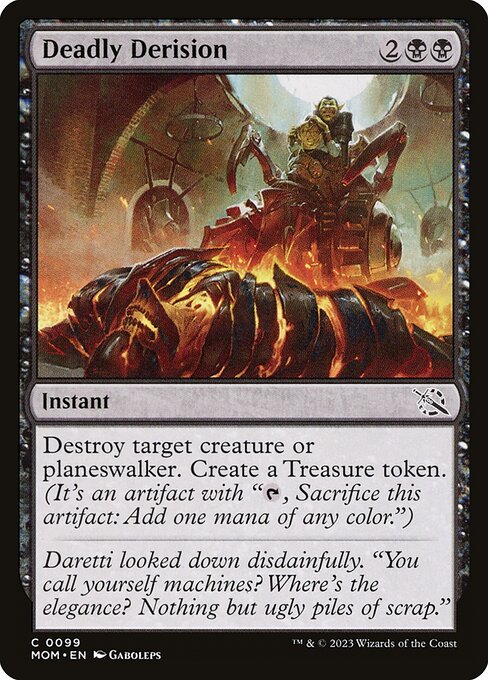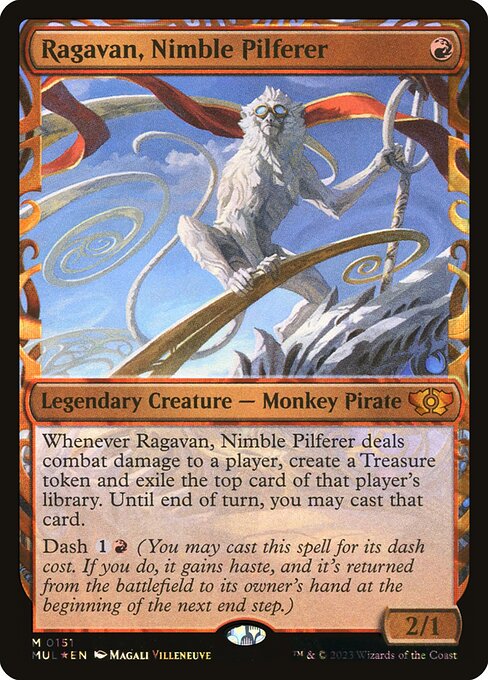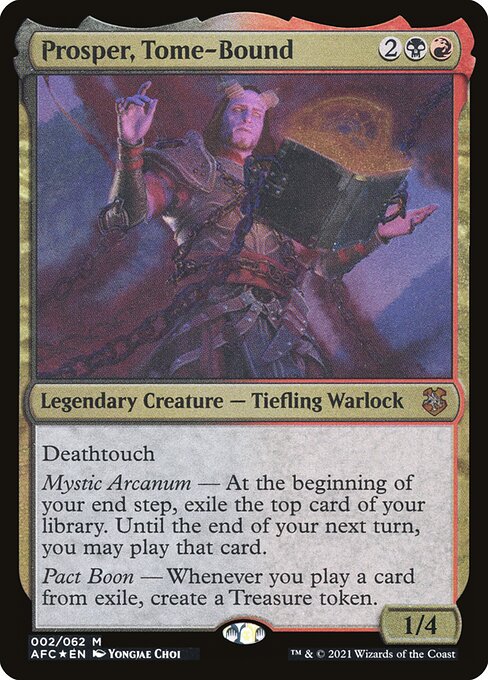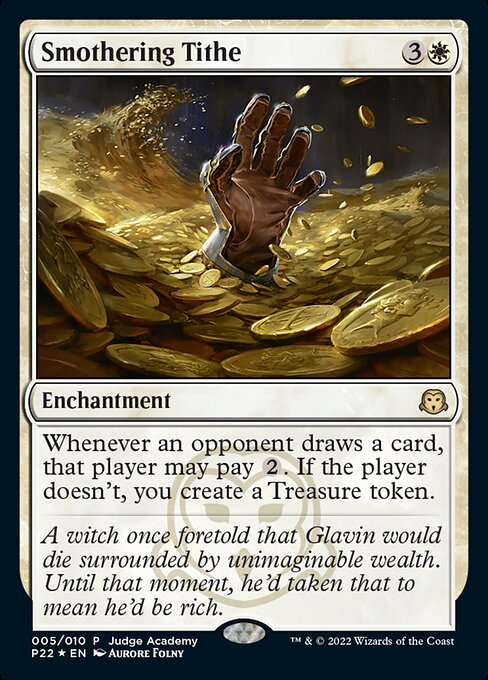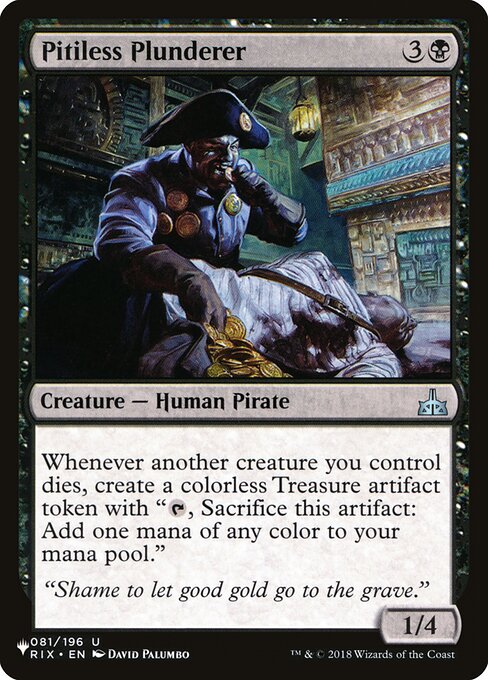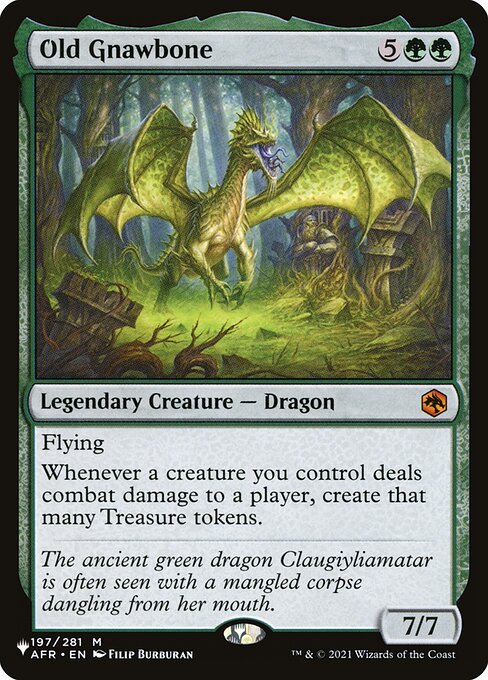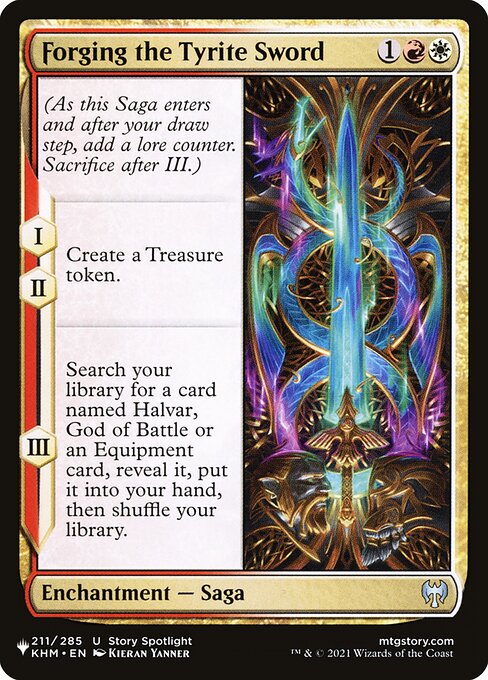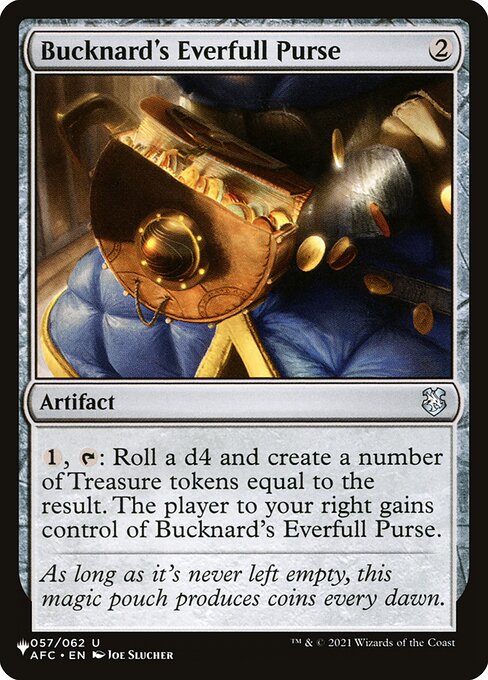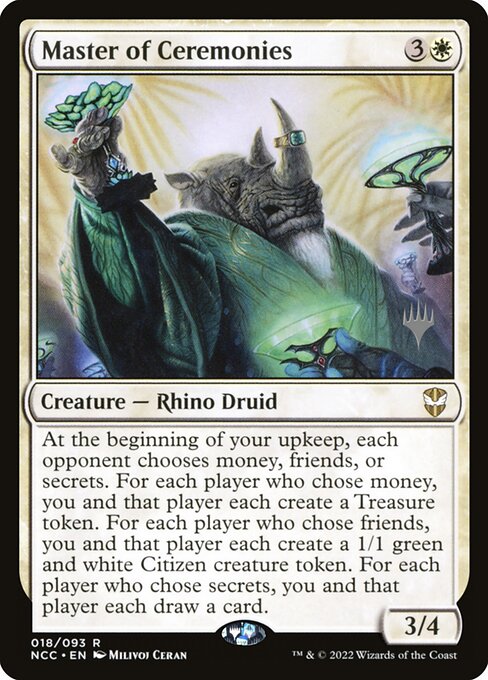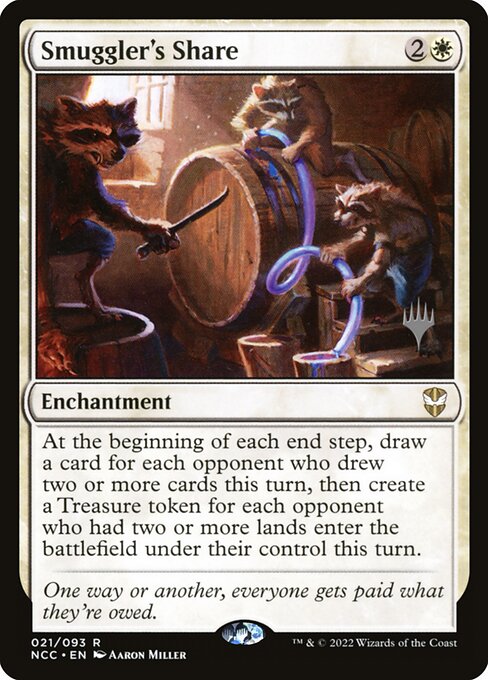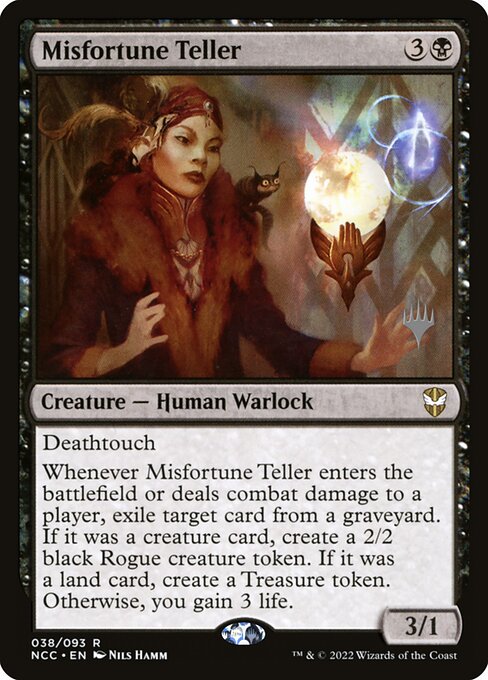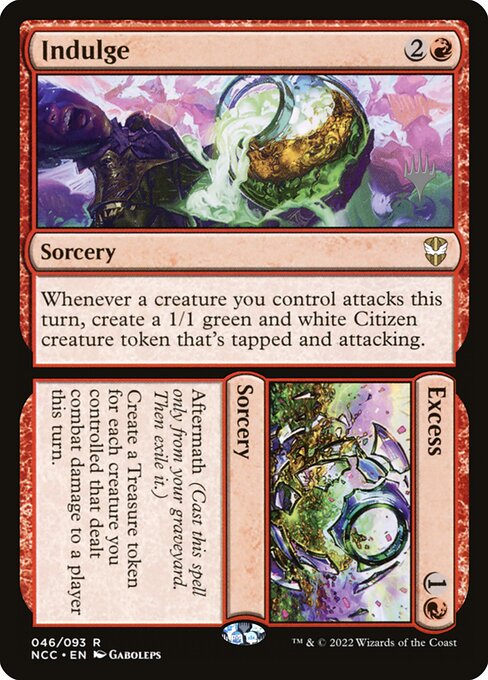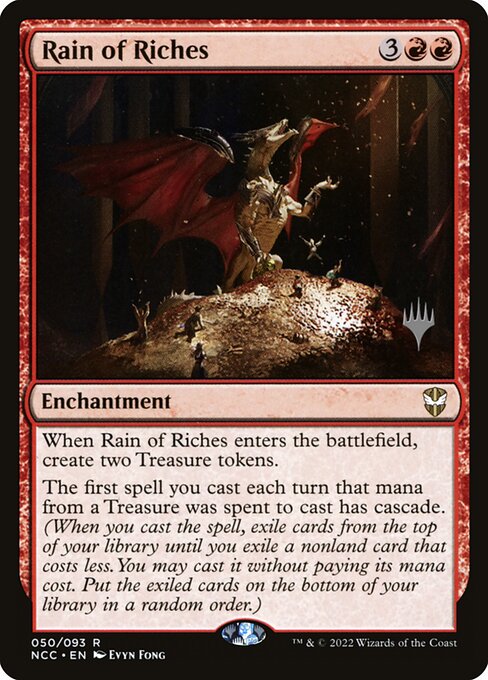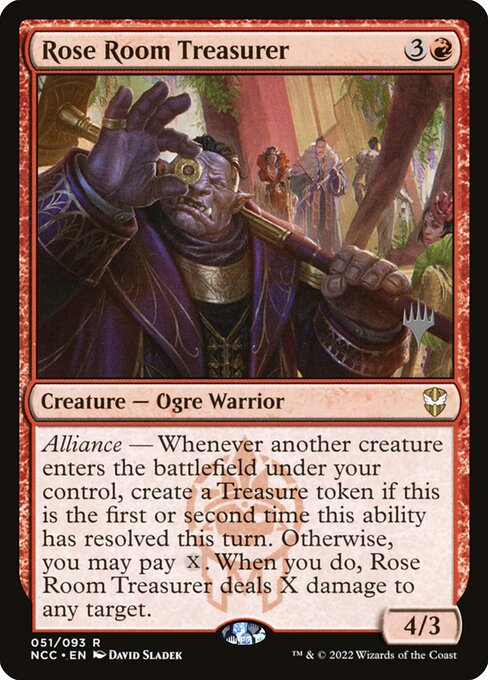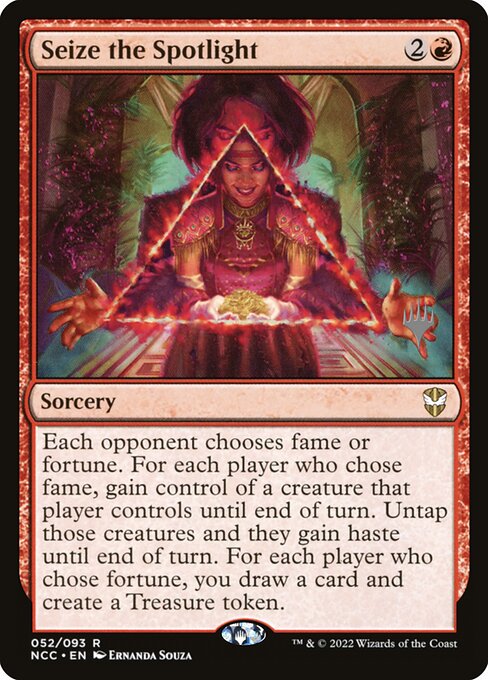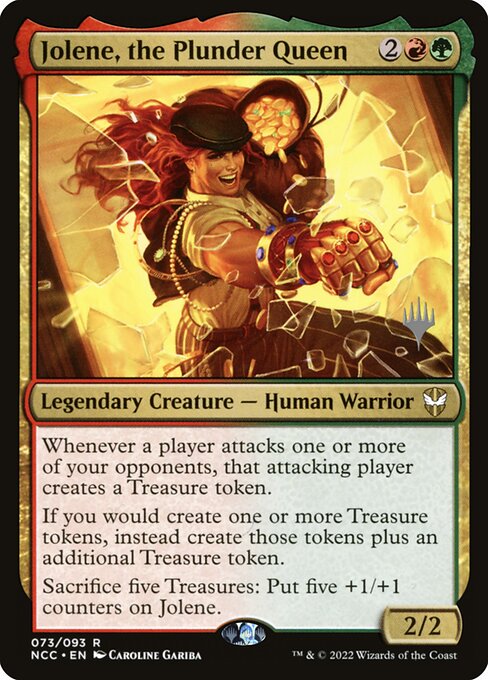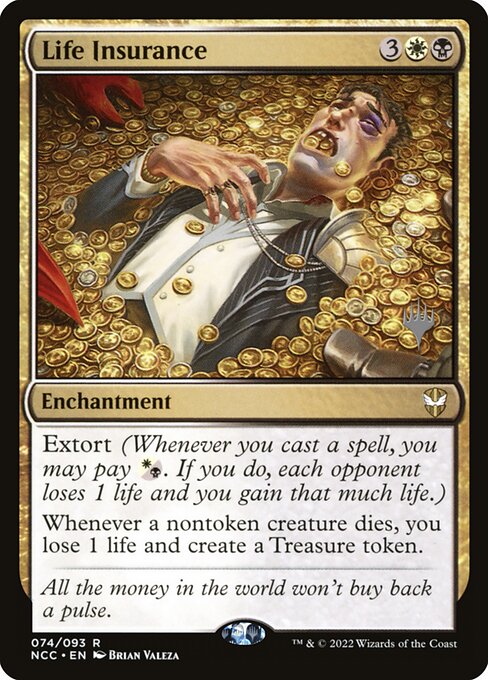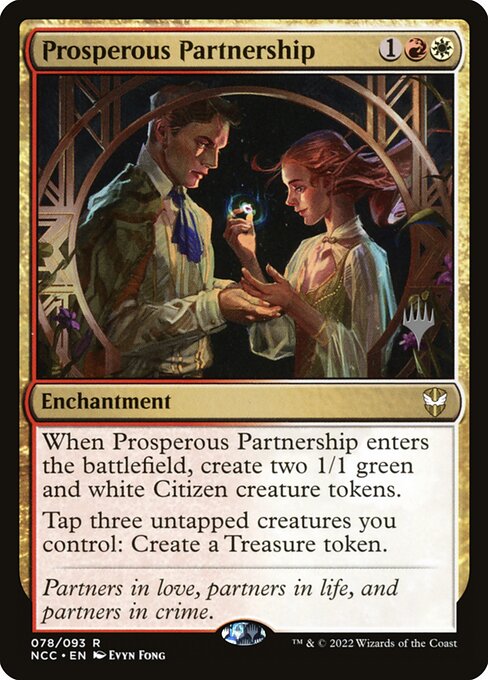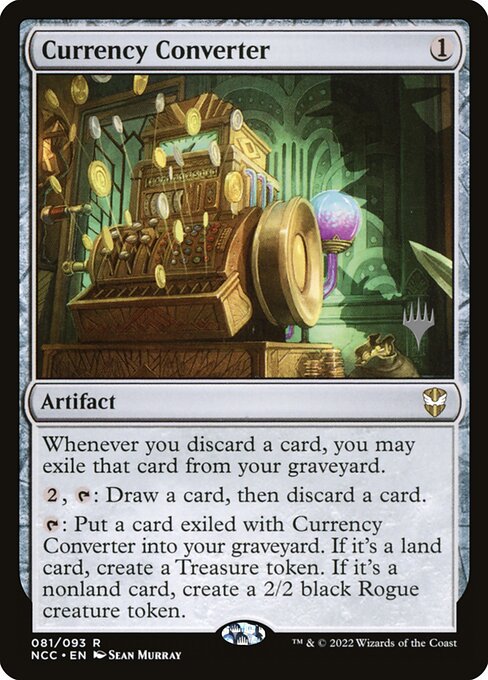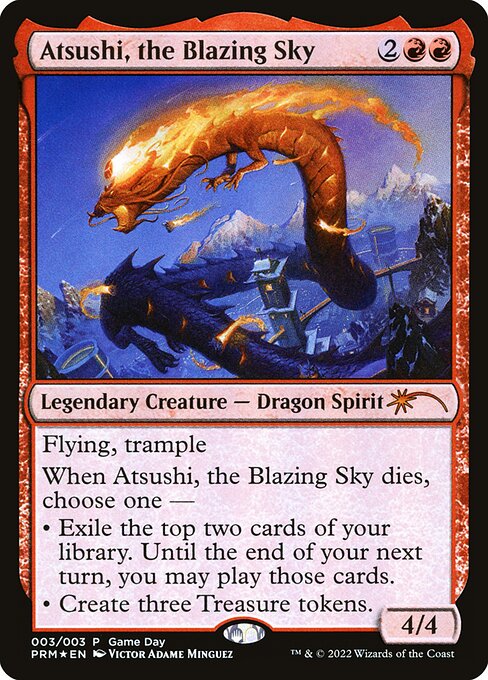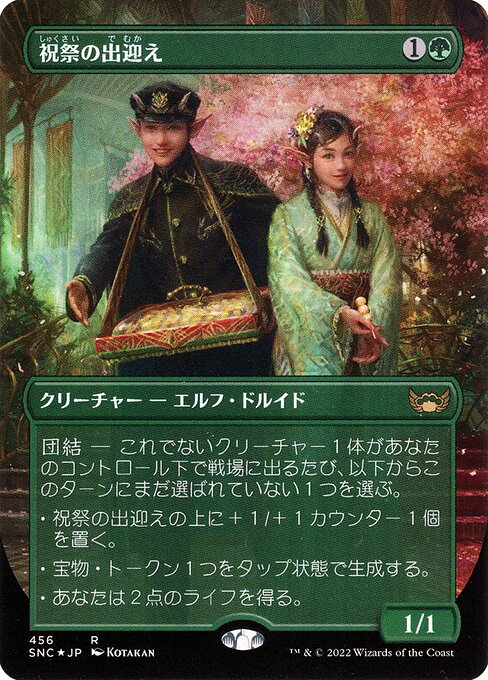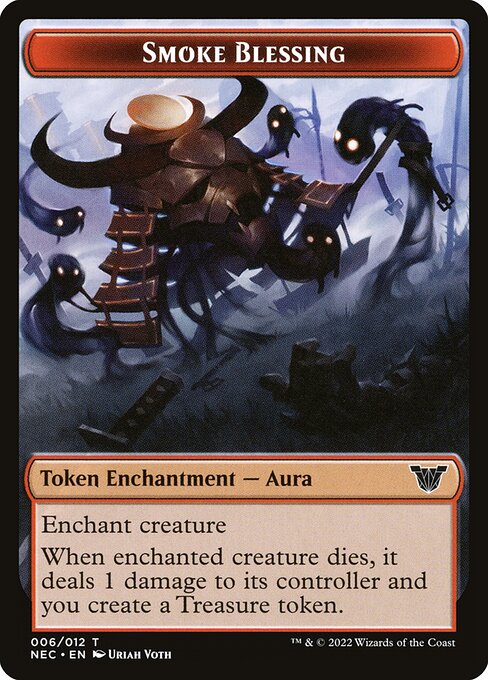Úrabrask // La Gran Obra
//
Criatura legendaria — Magistrado pirexiano // Encantamiento — Saga
Daña primero.
Siempre que lances un hechizo de instantáneo o de conjuro, Úrabrask hace 1 punto de daño al oponente objetivo. Agrega .
: Exilia a Úrabrask, luego regrésalo al campo de batalla transformado bajo el control de su propietario. Activa esto solo como un conjuro y solo si lanzaste tres o más hechizos de hechizo de instantáneo y/o de conjuro este turno. // (En cuanto esta Saga entre y después de tu paso de robar, agrega un contador de sabiduría.)
I — La Gran Obra hace 3 puntos de daño al oponente objetivo y a cada criatura que controla.
II — Crea tres fichas de Tesoro.
III — Hasta el final del turno, puedes lanzar hechizos de instantáneo y de conjuro desde cualquier cementerio. Si un hechizo lanzado de esta manera fuera a ir a un cementerio, en vez de eso, exílialo. Exilia La Gran Obra, luego regrésala al campo de batalla (con la cara frontal boca arriba).
Siempre que lances un hechizo de instantáneo o de conjuro, Úrabrask hace 1 punto de daño al oponente objetivo. Agrega .
: Exilia a Úrabrask, luego regrésalo al campo de batalla transformado bajo el control de su propietario. Activa esto solo como un conjuro y solo si lanzaste tres o más hechizos de hechizo de instantáneo y/o de conjuro este turno. // (En cuanto esta Saga entre y después de tu paso de robar, agrega un contador de sabiduría.)
I — La Gran Obra hace 3 puntos de daño al oponente objetivo y a cada criatura que controla.
II — Crea tres fichas de Tesoro.
III — Hasta el final del turno, puedes lanzar hechizos de instantáneo y de conjuro desde cualquier cementerio. Si un hechizo lanzado de esta manera fuera a ir a un cementerio, en vez de eso, exílialo. Exilia La Gran Obra, luego regrésala al campo de batalla (con la cara frontal boca arriba).
4/4
standard
future
historic
gladiator
pioneer
explorer
modern
legacy
pauper
vintage
penny
commander
brawl
alchemy
paupercommander
duel
oldschool
premodern
Rulings
If multiple players are allowed to cast the same card, the player with priority at any given time determines who can cast it. The player whose turn it is has priority as each step and phase begins, and they receive priority after each spell and ability resolves. This means immediately after chapter III resolves you’ll have priority to cast spells before any other player does.
Urabrask will count any instant or sorcery spells you’ve cast during the turn, whether those spells resolved, didn’t resolve, were countered, or left the stack some other way. Urabrask won’t count copies of instant and sorcery spells that were created on the stack and not cast.
After chapter III of The Great Work resolves, casting spells from graveyards follows the normal rules for casting those cards. You must pay their costs, and you must follow all applicable timing rules. For example, to cast a sorcery spell from a graveyard, you can do so by paying its mana cost only during your main phase while the stack is empty.
Urabrask’s second ability isn’t a mana ability, even though it causes you to add mana. It uses the stack and can be responded to.
Urabrask will count any instant or sorcery spells you’ve cast during the turn, whether those spells resolved, didn’t resolve, were countered, or left the stack some other way. Urabrask won’t count copies of instant and sorcery spells that were created on the stack and not cast.
After chapter III of The Great Work resolves, casting spells from graveyards follows the normal rules for casting those cards. You must pay their costs, and you must follow all applicable timing rules. For example, to cast a sorcery spell from a graveyard, you can do so by paying its mana cost only during your main phase while the stack is empty.
Urabrask’s second ability isn’t a mana ability, even though it causes you to add mana. It uses the stack and can be responded to.
Rulings
If multiple players are allowed to cast the same card, the player with priority at any given time determines who can cast it. The player whose turn it is has priority as each step and phase begins, and they receive priority after each spell and ability resolves. This means immediately after chapter III resolves you’ll have priority to cast spells before any other player does.
Urabrask will count any instant or sorcery spells you’ve cast during the turn, whether those spells resolved, didn’t resolve, were countered, or left the stack some other way. Urabrask won’t count copies of instant and sorcery spells that were created on the stack and not cast.
After chapter III of The Great Work resolves, casting spells from graveyards follows the normal rules for casting those cards. You must pay their costs, and you must follow all applicable timing rules. For example, to cast a sorcery spell from a graveyard, you can do so by paying its mana cost only during your main phase while the stack is empty.
Urabrask’s second ability isn’t a mana ability, even though it causes you to add mana. It uses the stack and can be responded to.
Urabrask will count any instant or sorcery spells you’ve cast during the turn, whether those spells resolved, didn’t resolve, were countered, or left the stack some other way. Urabrask won’t count copies of instant and sorcery spells that were created on the stack and not cast.
After chapter III of The Great Work resolves, casting spells from graveyards follows the normal rules for casting those cards. You must pay their costs, and you must follow all applicable timing rules. For example, to cast a sorcery spell from a graveyard, you can do so by paying its mana cost only during your main phase while the stack is empty.
Urabrask’s second ability isn’t a mana ability, even though it causes you to add mana. It uses the stack and can be responded to.
Votre collection ? vos decks ?
Envie de gérer votre collection et/ou créer des decks ?
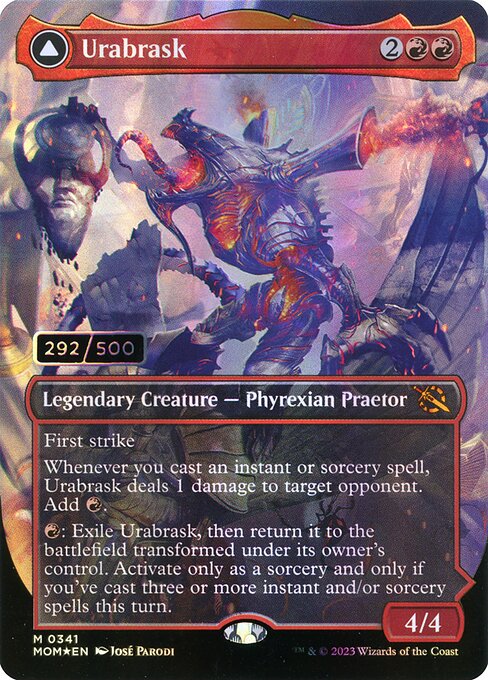

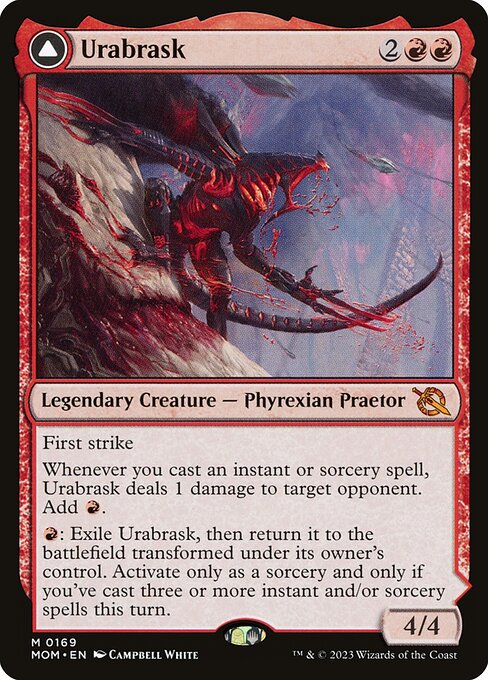
 0
0
 9.28€
9.28€
